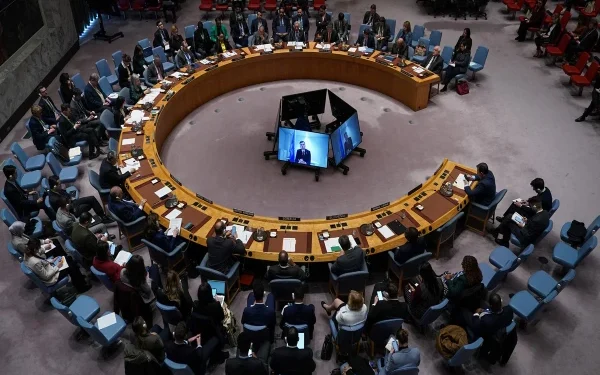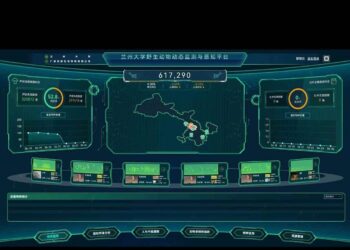New York – In a highly charged emergency meeting at the United Nations Headquarters in New York, world powers convened to discuss the escalating crisis in the Middle East following a United States-led military intervention targeting Iranian infrastructure. The UN Security Council session, called after a sudden escalation in the Iran-Israel conflict, witnessed intense diplomatic debates, strong condemnations, and an urgent call for de-escalation.
Backdrop: Rising Tensions in the Middle East
The emergency meeting came hours after the United States launched airstrikes on Iranian military facilities, citing national security threats and Tehran’s involvement in attacks on Israel. The intervention, seen as a significant escalation, has prompted global concerns about the potential for a full-scale regional war.
This comes amid weeks of hostilities between Iran and Israel, sparked by tit-for-tat attacks following a deadly Israeli airstrike on Iranian military officials in Damascus and a drone response from Iran. The situation has spiraled into an international crisis, with world leaders warning of consequences beyond the Middle East.
Russia, China, and Pakistan Lead Calls for Ceasefire
During the heated UN Security Council meeting, Russia, China, and Pakistan took a firm stance by urging the council to pass a resolution demanding an immediate and unconditional ceasefire between all parties in the Middle East. Their joint call underscored growing anxiety about the humanitarian implications and geopolitical instability stemming from continued military actions.
Russia’s Warning: Pandora’s Box Opened
Russian Permanent Representative Vasily Nebenzia delivered a sharp rebuke of the US actions. He stated unequivocally, “The United States has opened a Pandora’s box. Washington is clearly not interested in diplomacy or de-escalation.”
Nebenzia warned that the latest developments would lead to further destabilization in the Middle East and potentially inspire retaliatory attacks across the region. He criticized what he called “American unilateralism” and reiterated Russia’s position that diplomatic channels must remain open.
China’s Strong Condemnation and Call for Investigation
China’s Permanent Representative Fu Kang echoed Moscow’s concerns, condemning the US strikes in strong terms. “Beijing strongly condemns the US attacks and prioritizes peace above all,” he said. Fu Kang urged the international community not only to demand a ceasefire but also to launch a United Nations investigation into the legality and motives behind the US intervention.
China emphasized that unilateral military actions without UN authorization undermine global peace efforts and violate international norms. Fu stressed, “The role of the United Nations is to prevent wars, not to justify them after they have begun.”
Pakistan’s Firm Stand on UN Charter and Peace
Pakistan’s Permanent Representative, Ambassador Asim Iftikhar, reaffirmed his country’s principled stance in support of peace and respect for international law. Addressing the Council, he said:
“Pakistan will continue to fulfill its responsibilities for the promotion of international peace and security in accordance with the UN Charter. The situation demands restraint, not aggression.”
Ambassador Iftikhar warned that if the conflict spreads further, the humanitarian and strategic fallout will be severe. He also called for increased diplomatic engagement and the immediate opening of humanitarian corridors in Gaza and affected areas in Iran.
Iran’s Outrage Over ‘Unprovoked Aggression’
Iran’s Permanent Representative, Amir Saeed Iravani, used the platform to condemn the United States for what he described as “open aggression” based on fabricated justifications. Iravani stated:
“Washington attacked under a baseless pretext. This is a serious threat to international peace and must be rejected in the strongest possible terms.”
He emphasized that the Iranian government views the US intervention as a violation of Iranian sovereignty and warned that continued aggression could lead to dire regional and global consequences.
Iravani also criticized Israel, labeling it as the instigator of the current crisis and asserting that any international response must include accountability for Israeli actions as well.
Israel Defends US Action, Praises Trump
On the other end of the spectrum, Israel’s Permanent Representative to the UN, Danny Danon, defended the US action, praising President Donald Trump’s decisive leadership. “The entire world should thank President Trump, who took a bold stand and acted when others were afraid,” said Danon.
He accused Iran of turning diplomatic talks into theater and said that firm military action was necessary to halt Tehran’s regional ambitions.
Danon also criticized those calling for a ceasefire without holding Iran accountable, stating, “A ceasefire without consequences emboldens terrorists. Iran must be stopped.”
UN Secretary-General Issues Stark Warning
UN Secretary-General António Guterres addressed the Council in solemn terms, calling the recent US attack a “dangerous turning point” in an already volatile region. Guterres appealed to all nations to act with restraint and renewed his call for a return to diplomacy.
“The region is already teetering on the edge of a larger conflict. The international community must prevent yet another cycle of destruction and urgently resume peace efforts.”
He reiterated the need for a sustainable peace framework, involving both Israel and Iran, and stressed the importance of preserving the authority of the United Nations in matters of international conflict.
Implications for Global Diplomacy
The reactions at the UN illustrate a stark divide between Western powers and key global players such as China, Russia, and several Islamic countries. While some Western allies have shown muted support for the US action, others, including European Union members, have called for restraint and a return to negotiations.
The current crisis has also brought renewed attention to the fragility of the international order, particularly the role of the UN Security Council in responding to conflicts between powerful member states.
Broader Geopolitical Consequences
The US intervention has cast a shadow over peace prospects in not only the Middle East but also regions such as South Asia and Eastern Europe, where unresolved tensions persist. Analysts warn that continued escalation could have economic ramifications, such as disruptions to oil markets, and intensify global insecurity.
Furthermore, the conflict threatens to derail ongoing nuclear negotiations with Iran and could further isolate Washington diplomatically if no international consensus emerges in the coming days.
Conclusion: World Awaits Next Move
As diplomatic efforts continue, all eyes remain on Washington, Tehran, and Tel Aviv to see if further military actions will ensue or if the pressure from the international community—particularly within the UN—can bring about a fragile truce.
In the words of the Secretary-General:
“Now is not the time for confrontation. Now is the time for statesmanship.”
The international community stands at a crossroads—between escalating war and the difficult road toward peace. The next steps by the United States, Iran, and their allies will determine whether this crisis marks the beginning of a broader conflict or a turning point toward de-escalation.

























